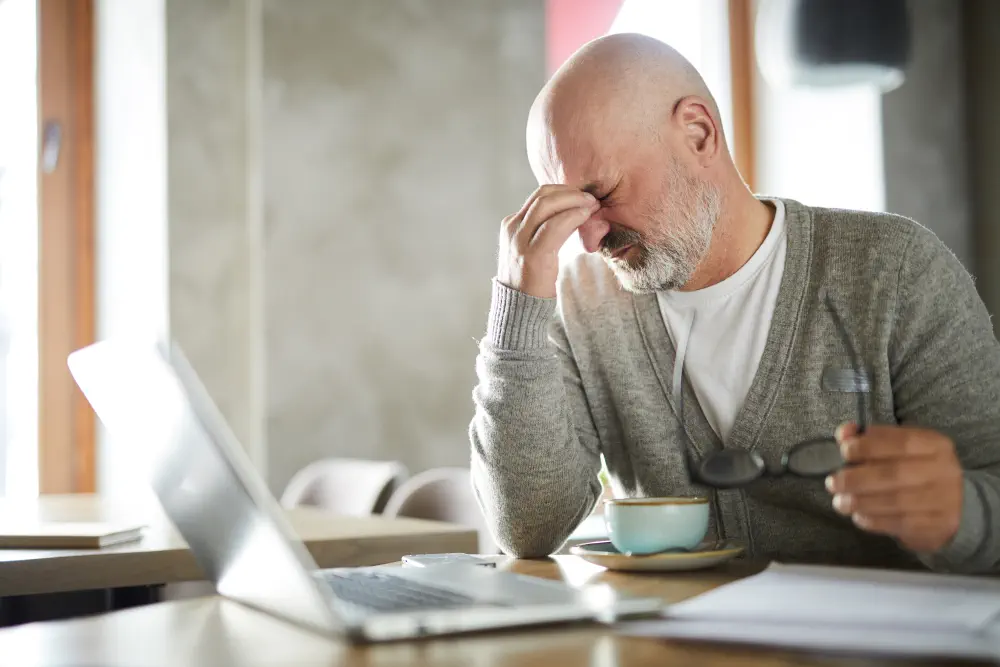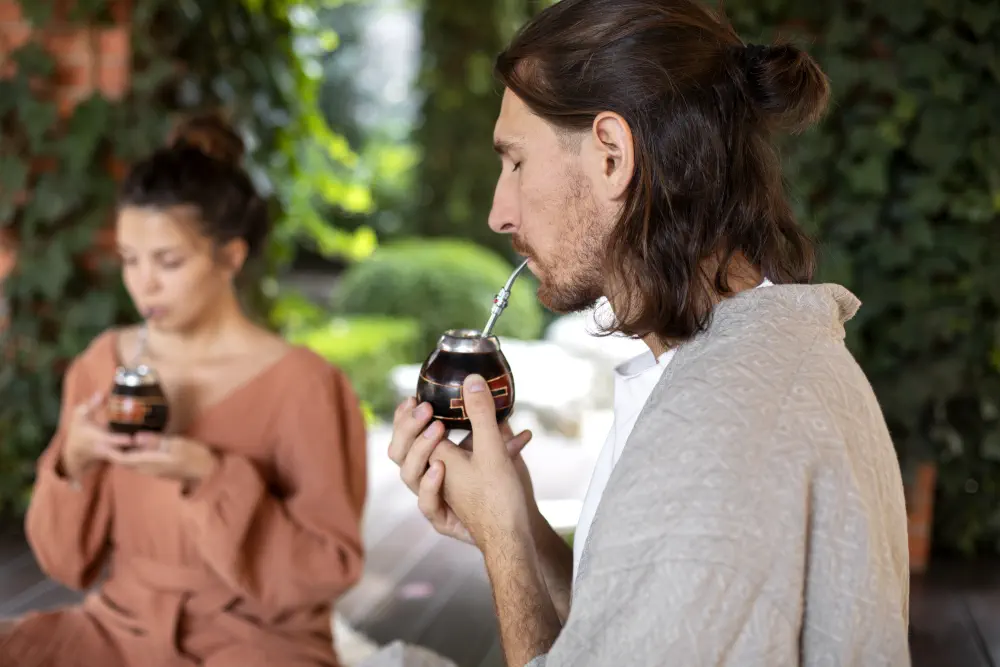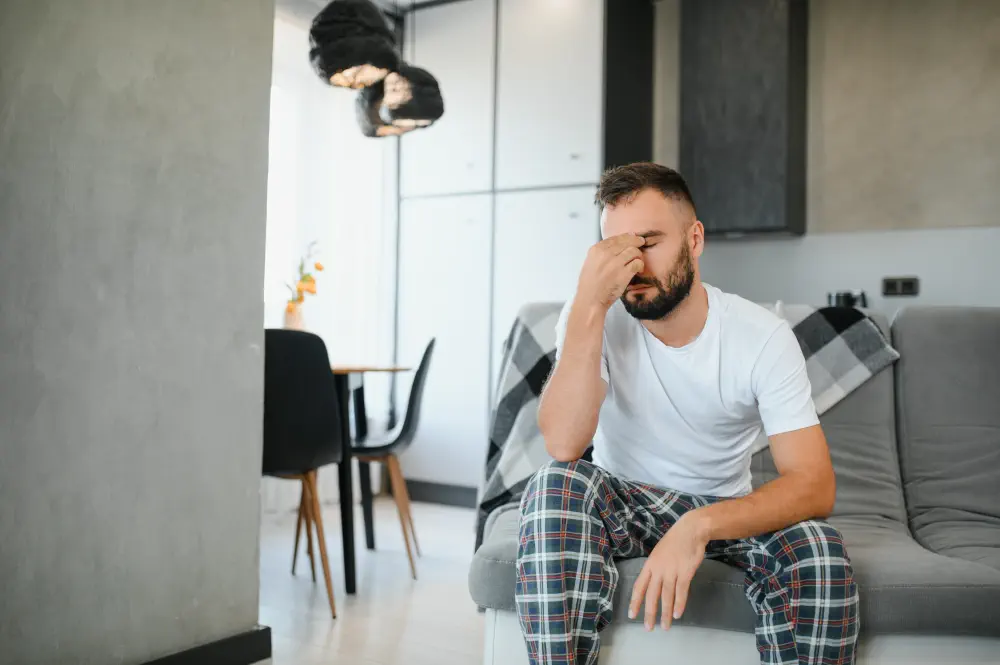We offer medical detox and multiple addiction treatment options in our
luxury treatment centres in Port Hope, Cobourg, and Ottawa.
The Dangers of Combining Lexapro and Alcohol
Sarah's sister just got engaged. The champagne cork pops. Everyone grabs a glass except Sarah, who's staring at the bubbling flute in her hand. She took her Lexapro this morning—same as every morning for the past three months. One glass couldn't hurt, could it?
This moment happens in Canadian homes every weekend. People taking antidepressants face the choice: join the celebration or protect their medication. The stakes are higher than most realize.
Mixing Lexapro and alcohol isn't just unwise. It can destroy months of mental health progress and create medical emergencies that land you in the hospital.
Key Takeaways
- Dangerous Chemical Conflict: Lexapro and alcohol create neurological chaos that can undo months of mental health progress and cause unpredictable, dangerous reactions.
- No Safe Amount: Even small quantities of alcohol can cause serious interactions because Lexapro changes how your body processes alcohol.
- Physical Health Risks: The combination overwhelms your liver, affects heart rhythm, impairs breathing, and severely compromises motor skills beyond typical alcohol impairment.
- Overdose Amplification: Alcohol significantly increases lexapro overdose risk and can lead to potentially fatal serotonin syndrome.
- Withdrawal Complications: Quitting Lexapro while drinking creates severe withdrawal symptoms that can last months and trigger dangerous depression.
- Social Navigation Strategies: Canadians can manage drinking pressure through prepared responses, suggesting alternatives, and focusing on activity-based social connections.
- Professional Help is Essential: Warning signs like timing drinks around medication or hiding alcohol use from doctors indicate immediate need for dual diagnosis treatment.
How Lexapro Functions in Your Brain
Your brain runs on chemical messengers. Serotonin is one of the most important ones—it handles mood, sleep, and anxiety. Think of it like a postal worker carrying messages between brain cells.
Normally, your brain releases serotonin, uses it briefly, then sucks it back up for recycling. Lexapro blocks that recycling process. More serotonin stays in circulation, which should help stabilize your mood.
The catch? This takes time. Lots of time.
Most people don't feel better for at least a month. Real improvement often takes two or three months of daily use. During those first weeks, Lexapro side effects can make you feel worse before you feel better. Nausea. Headaches. Sleep problems. Your brain is essentially learning a new operating system.
Skip doses? Throw alcohol into the mix? You're hitting the reset button. Lexapro needs consistent blood levels to work. Anything that messes with that consistency can undo weeks of progress.
What Happens When You Take Lexapro and Drink Alcohol
Your brain gets conflicting instructions. Lexapro says "stabilize mood and regulate emotions." Alcohol screams "shut down the central nervous system."
These substances work against each other. Alcohol depresses brain function while Lexapro tries to enhance it. The result is neurological chaos.
Timing matters, but not how you think. Drinking hours after taking your pill still causes problems. Lexapro stays active in your body for days, not hours.
Alcohol undermines everything your medication accomplishes. Lexapro slowly builds emotional stability. Alcohol delivers a temporary mood boost followed by a crash that often brings depression roaring back stronger than before.
Your brain during this chemical war:
- Mixed signals bouncing between neurons
- Serotonin pathways getting scrambled
- Emotional stability disappearing
- Therapeutic progress getting erased
- Alcohol effects lasting longer than normal
People describe feeling like they're on an emotional roller coaster after drinking on Lexapro. The medication's steady influence gets bulldozed by alcohol's chaotic interference.

Physical Health Consequences Beyond Hangovers
Your liver works overtime processing both substances. Imagine asking someone to juggle while solving math problems—something's going to suffer. Both Lexapro and alcohol need the same liver enzymes for breakdown. When your liver gets overwhelmed, toxicity levels spike.
Your heart doesn't know what to do either. Lexapro might speed up your heart rate. Alcohol opens blood vessels, then slams them shut as it leaves your system. Your cardiovascular system gets whiplash.
Breathing becomes harder because both substances slow your respiratory system. It's like having two people pressing on your chest simultaneously. Some people feel like they're suffocating.
Motor skills go haywire beyond typical drunkenness. Balance disappears. Coordination crumbles. Reaction times slow to dangerous levels. This isn't your standard stumbling—it's something much more unpredictable.
Emergency warning signs:
- Extreme drowsiness or barely staying conscious
- Heart beating irregularly or chest pain
- Struggling to breathe or feeling suffocated
- Severe dizziness or inability to stand
- Repeated vomiting or inability to keep fluids down
These symptoms develop fast and worsen quickly. You can't predict your response based on how you normally handle alcohol.
Understanding Lexapro Overdose Risks
Alcohol turns your prescribed medication into a potential weapon. When your liver is busy with alcohol, it can't properly process Lexapro. More antidepressant stays in your bloodstream than your body can handle.
Overdose symptoms look different when alcohol gets involved. Severe confusion that makes you feel completely lost. Racing heart. Muscle seizures. Some people have convulsions.
Serotonin syndrome is the nightmare scenario. Too much serotonin builds up, causing high fever, muscle rigidity, and severe agitation. People die from this.
Emergency rooms see this combination regularly. The problem is that standard overdose treatments don't work when multiple substances are involved. Doctors need to know exactly what you took and how much.
Don't wait if you think someone is overdosing. Call emergency services immediately. When your brain is under chemical assault, every minute matters.
Navigating Social Pressure in Drinking Culture
Work events create additional pressure. Client dinners where everyone orders wine. Office parties where refusing drinks feels antisocial. Networking events where alcohol seems mandatory for conversation.
Handling social pressure without compromising your health:
- Prepare your response: "I'm on medication that doesn't mix with alcohol"
- Become the designated driver: Instant respect and credibility
- Suggest alternatives: Coffee dates, hiking, movie nights
- Master the fake cocktail: Sparkling water with lime looks authentic
- Focus on connection: People care about your presence, not your drink
Building new stress relief habits becomes crucial. Exercise gives you natural mood boosts that work with your medication. Creative projects provide outlets without chemical interference. Outdoor activities—something Canadians excel at—offer great alternatives to bar culture.
Look for social groups that don't center around drinking. Book clubs. Photography groups. Volunteer organizations. You'll find plenty of people seeking the same thing.

Managing Lexapro Withdrawal Symptoms Safely
Quitting Lexapro while drinking creates withdrawal hell. Alcohol might temporarily mask withdrawal symptoms, making you think you're handling things better than you are. You're not—you're just delaying the inevitable.
Combining alcohol withdrawal with antidepressant withdrawal can trigger severe depression, panic attacks, and suicidal thoughts. This isn't something to handle alone.
Common Lexapro withdrawal symptoms that alcohol makes worse:
- "Brain zaps" that feel like electrical shocks
- Dizziness that makes you feel seasick
- Flu symptoms that sap your energy
- Mood swings that make you feel unstable
- Sleep problems and disturbing dreams
- Stomach issues that kill your appetite
Medical supervision isn't optional. It's necessary. Canadian doctors recommend gradual dose reduction over weeks or months. This gives your brain time to adjust without shock.
Alcohol throws this careful process into chaos. What should take a few weeks can stretch into months of misery. Your brain needs consistency to heal.
Provincial health systems offer withdrawal support. The key is honesty with your healthcare team about both medication and drinking patterns.
Addressing Myths About "Safe" Mixing
Medical professionals everywhere agree: don't combine these substances. Ever. Yet dangerous myths persist.
The "one drink won't hurt" belief is probably the most dangerous lie people tell themselves. Even small amounts can cause serious problems because Lexapro changes how your body processes alcohol. Your normal tolerance means nothing.
Special occasions don't get exemptions. Your brain chemistry doesn't care if it's your wedding or birthday. The risks stay the same regardless of how important the event feels.
Some people think they've found their "safe limit" through trial and error. This is like playing Russian roulette with brain chemistry. What felt safe last time could be dangerous next time.
Others assume they're fine because they don't feel immediate effects. Many dangerous interactions develop slowly or show up hours later. The absence of immediate problems doesn't mean you're safe.
Warning Signs That You Need Professional Help
Recognizing when you can't handle this alone is crucial. Some people try to manage both their depression and drinking without realizing how dangerous the combination has become. Certain warning signs indicate you need professional intervention immediately.
If you find yourself planning when to drink around your Lexapro doses, that's a red flag. You might think you're being careful, but you're actually playing with fire. Any attempt to "strategically" time alcohol consumption with your medication shows the problem has progressed beyond self-management.
Another warning sign is hiding your drinking from your doctor. Many people minimize their alcohol use during medical appointments, especially when discussing mental health medications. This dishonesty prevents your healthcare provider from giving you accurate guidance about whether can you mix alcohol and Lexapro safely. The answer is always no, but honest communication helps your doctor monitor for complications.
Escalating depression despite being on medication often signals that alcohol is interfering with treatment. If your symptoms worsen or return while taking Lexapro, alcohol consumption might be sabotaging your progress. The medication can't do its job when alcohol keeps disrupting the neurochemical balance.
Experiencing blackouts or memory gaps while drinking on Lexapro is extremely dangerous. This combination affects your brain differently than alcohol alone. Memory problems indicate your brain is under serious stress from the chemical interaction.

Accessing Treatment Resources in Canada
Admitting you need help with both depression and drinking takes courage. Dual diagnosis treatment tackles both problems together instead of pretending they're separate. This makes sense because depression and alcohol problems usually feed each other.
The Canadian Centre for Addictions understands this complexity. Treatment teams work with your doctor to ensure psychiatric medications help instead of hinder your recovery. They've seen countless people struggle with the exact same questions about whether they can drink while taking antidepressants.
Support available across Canada:
- Outpatient counselling: Regular therapy while keeping your routine
- Intensive programs: Daily sessions with medical monitoring
- Residential treatment: Round-the-clock care for serious cases
- Support groups: Connect with others facing similar struggles
- Family therapy: Help loved ones understand and support recovery
Provincial health systems offer different support levels. Many workplace benefits cover addiction treatment, making professional help more accessible than expected. Some provinces have specific programs for people dealing with both mental health medications and substance use concerns.
Recovery works best when everyone communicates. Your family doctor, psychiatrist, addiction counsellor, and support network all need to stay connected. When this happens, your Lexapro treatment helps instead of hurts your recovery.
The biggest mistake people make is thinking they have to choose between treating their depression and addressing their drinking. Modern treatment approaches handle both simultaneously, recognizing that mental health and substance use are deeply connected.
Mixing Lexapro and alcohol destroys mental health progress and creates genuine medical emergencies. Your fight against depression and anxiety deserves better than being sabotaged by substances that work against your medication.
Recovery means making tough choices about what helps versus what hurts your mental health. Giving up alcohol might feel like sacrifice, but it's actually taking control of your recovery.
If you're struggling with medication questions or finding it impossible to avoid drinking while managing depression, professional help changes everything. The Canadian Centre for Addictions helps people navigate exactly these challenges. You don't have to figure this out alone.
FAQ
Can I have just one drink while taking Lexapro?
No, even small amounts create dangerous interactions that can undo treatment progress and cause serious side effects.
How long after stopping Lexapro can I drink safely?
Wait at least one to two weeks after your final dose since the medication stays active in your system.
What if I accidentally drank while taking Lexapro?
Watch for severe drowsiness, confusion, or breathing problems, and get medical help immediately if serious symptoms appear.
Does alcohol cancel out Lexapro's benefits?
Yes, alcohol disrupts serotonin regulation and can bring back depression and anxiety symptoms or make them worse.
What are good alternatives to alcohol for socializing?
Try mocktails, suggest activity-based meetups, or focus on coffee dates and outdoor activities that don't involve drinking.






